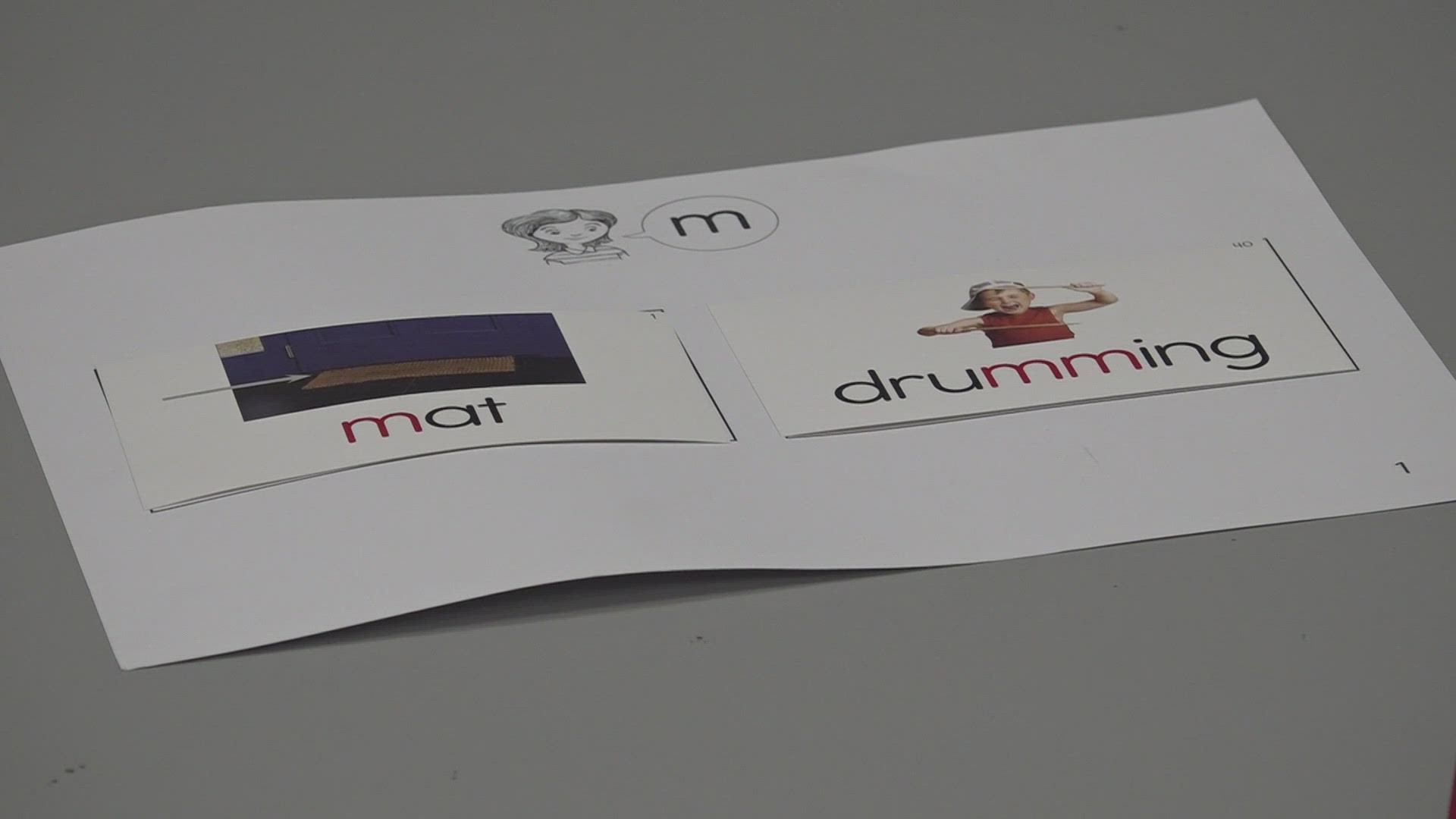MIDLAND, Texas — School started on Aug. 9 for several school districts around the Permian Basin, and in Midland ISD, that means the district is still fresh into a curriculum change.
In an effort to improve literacy, MISD implemented a new, district-wide approach to teaching reading.
It is a transition from a method called whole language to what is known as a phonics-based approach. The new curriculum is focused on k-through-second grade, with resources available for third-through-sixth grade as well, and it really starts with the basics.
“Phonics breaks down not only the word, but also intellect letter sounds and how we blend those letter sounds," said Ashley Osborne, associate superintendent for teaching and learning in Midland ISD.
MISD is looking to improve.
“Over half of our third graders were not reading on grade level," Osborne said.
This transition is looking to change that.
“In those primary grades – so kinder, first, second – …it is critical that our students have access to phonics-based approach so that they can gain those skills to be able to decode and encode words, and be able to put those together and actually read," Osborne said.
Osborne helped bring this change to the entire district. George H.W. Bush Elementary School started phonics-based literary instruction last year, and Melanie Martin -- a kindergarten teacher at the school -- knows its impact.
“It just seemed to flawlessly flow in their learning," Martin said. "They could associate the letters and the sounds; they could put those down on paper and then they could read and write them as well.”
The new approach is off to a good start.
“Our teachers have embraced it with open arms, and they’re giving us a ton of positive feedback of how they’re using the resource in their classroom and the difference that it’s making," Osborne said.
MISD knows the importance of literacy, which is about much more than just words.
“Literacy is critical to being successful throughout one’s life," Osborne said. "We believe that literacy and teaching students to read is foundational so that they can not only be successful in the coursework that they partake in while they’re with us, but what they do after their K-12 education as well."
With the phonics-based approach being implemented across the district, it also benefits students who might change schools during their educational journey. Osborne mentioned that she visited classrooms last week and believes it is already making a difference with how the students are engaging with one another and the curriculum.

